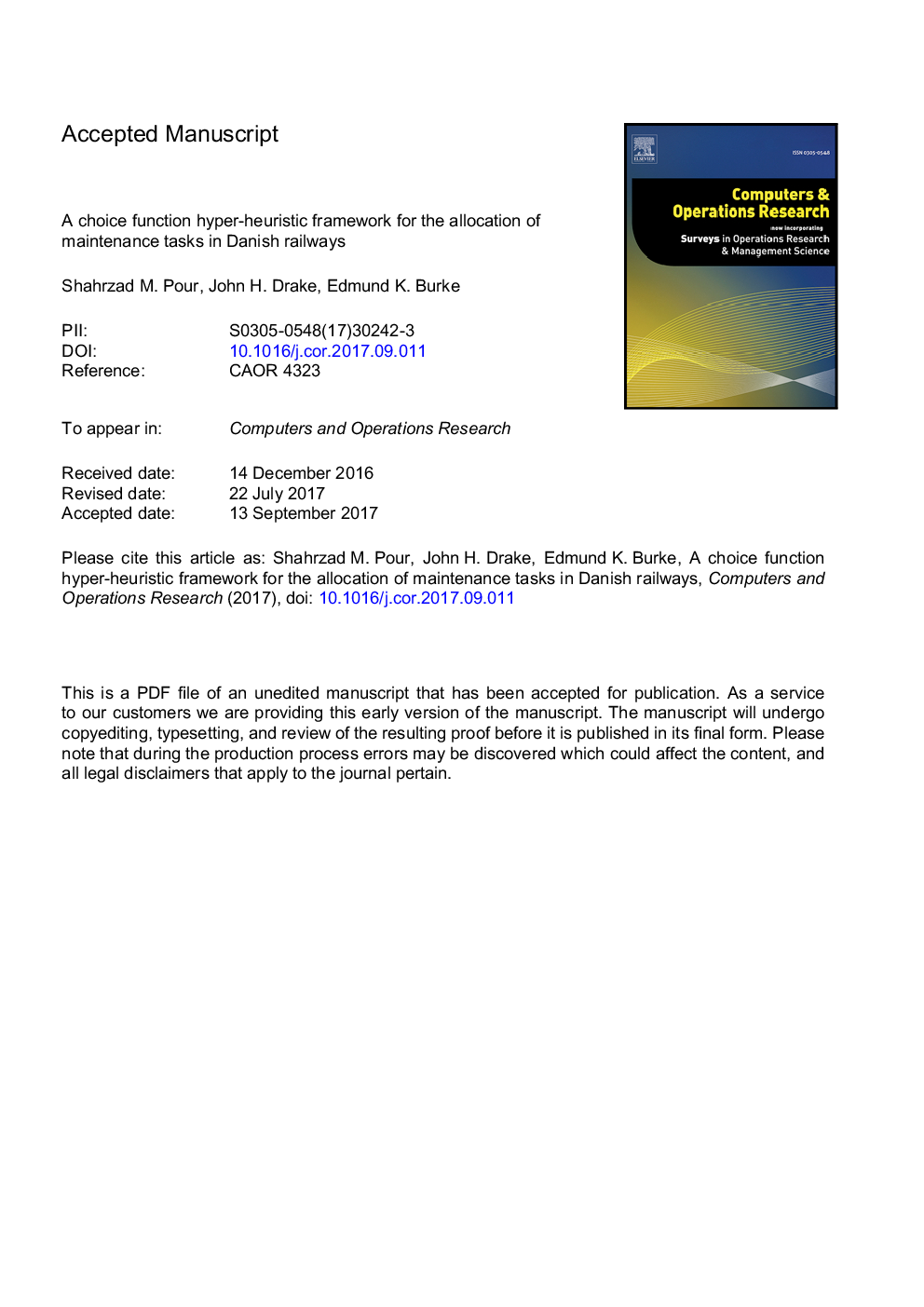| Article ID | Journal | Published Year | Pages | File Type |
|---|---|---|---|---|
| 6892660 | Computers & Operations Research | 2018 | 34 Pages |
Abstract
A new signalling system in Denmark aims at ensuring fast and reliable train operations. However, it imposes very strict time limits on recovery plans in the event of failure. As a result, it is necessary to develop a new approach to the entire maintenance scheduling process. In the largest region of Denmark, the Jutland peninsula, there is a decentralised structure for maintenance planning where the crew start their duties from their home locations rather than starting from a single depot. In this paper, we allocate a set of maintenance tasks in Jutland to a set of maintenance crew members, defining the sub-region that each crew member is responsible for. Two key considerations must be made when allocating tasks to crew members. Firstly a fair balance of workload must exist between crew members. Secondly, the distance between two tasks in the same sub-region must be minimised in order to facilitate a quick response in the case of unexpected failure. We propose a perturbative selection hyper-heuristic framework to improve initial solutions by reassigning outliers (those tasks that are far away) to another crew member at each iteration, using one of five low-level heuristics. The results from two hyper-heuristics, using a number of different initial solution construction methods are presented over a set of 12 benchmark problem instances.
Related Topics
Physical Sciences and Engineering
Computer Science
Computer Science (General)
Authors
Shahrzad M. Pour, John H. Drake, Edmund K. Burke,
